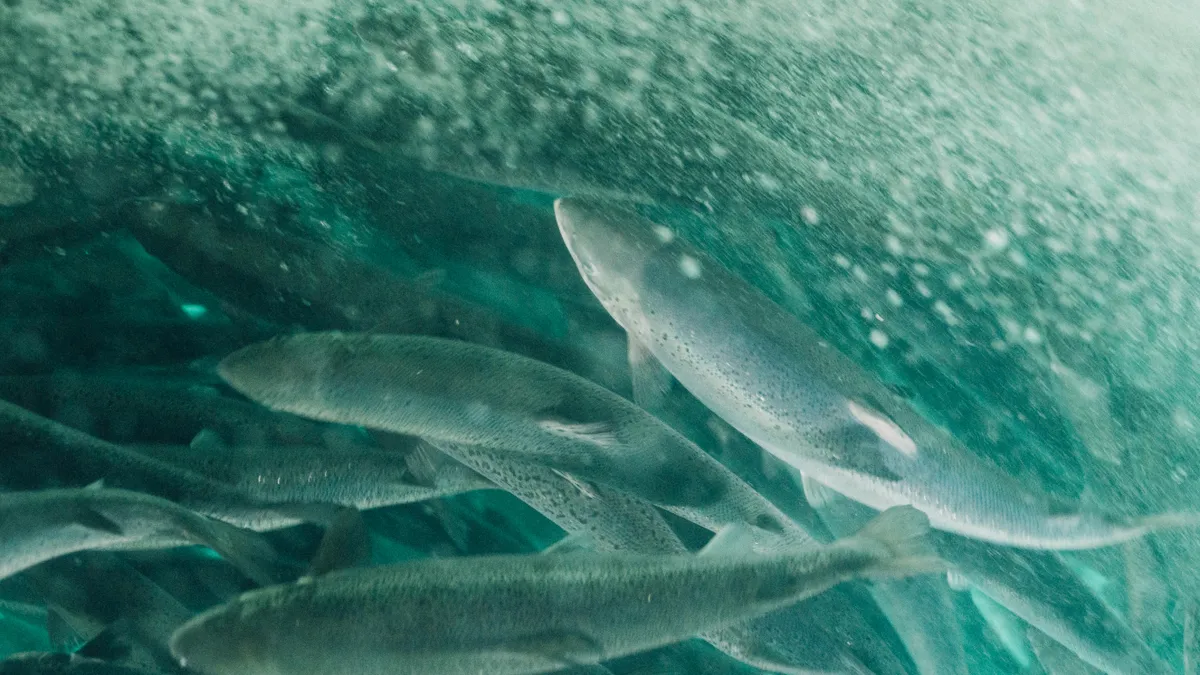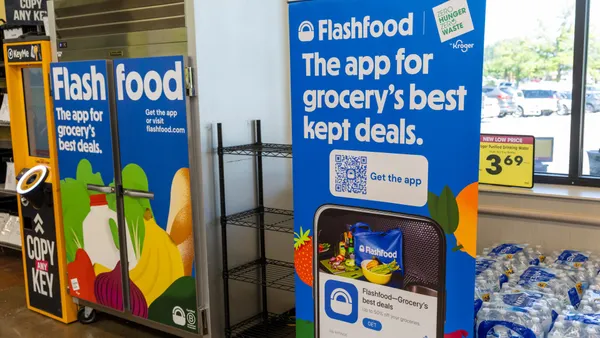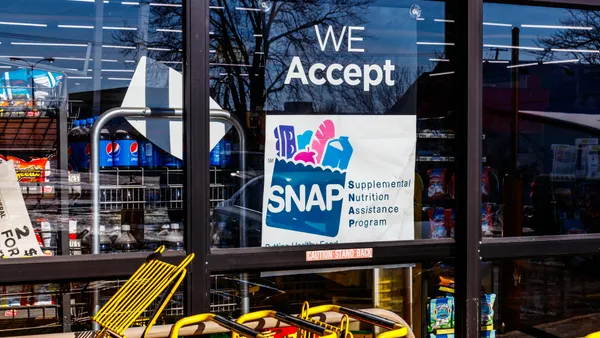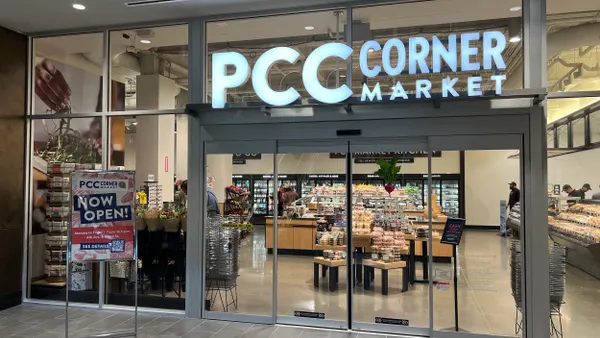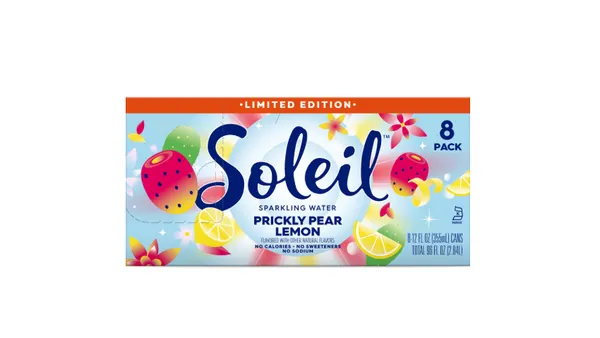UPDATE: Oct. 15, 2020: Publix offered additional comments on its sustainability efforts. "We are committed to sustainable seafood, and have been for decades... From our partnership with [Sustainable Fisheries Partnership] SFP to our sustainable seafood labels that bring complete transparency to our customers — we take our role in promoting greater sustainability in the seafood industry seriously," Guy Pizzuti, business development director for seafood at Publix, said in an email.
Dive Brief:
- Publix plans to start selling farm-raised salmon from Miami, Florida, in select stores in November through a collaboration with salmon farmer Atlantic Sapphire, a spokesperson for the initiative said.
- Last month, the land-based salmon farming company announced its first harvest at scale of U.S.-raised Bluehouse Salmon, which aren’t raised with antibiotics or hormones and are traceable “from egg to plate.” "We envision sustainably sourcing with transparency as the expectation of customers in the future," Pizzuti said. "They will be asking for more information and we must be in a position to provide that information."
- The partnership is Publix’s latest effort to increase its sustainable seafood offering, further carbon reduction and support innovation in farming technologies.
Dive Insight:
Publix’s collaboration with Atlantic Sapphire moves forward the grocer’s sustainable seafood efforts as supermarkets increasingly focus on sustainability and environmental protection.
Seafood sales saw roughly 30% growth in the second quarter of this year from 2019, according to the United Fresh Produce Association. Currently, seafood in the U.S. is primarily imported from Chile, Norway, Scotland and Canada. Raising fish domestically cuts down the carbon footprint of imported seafood.
"By moving the operation on land and under roof, you have the ability to increase production while reducing the impact on the environment," Pizzuti said, adding that the partnership can also reduce the trade deficit in seafood.
Atlantic Sapphire, a publicly traded company that was founded in Norway in 2010 and operates its U.S. headquarters in Miami, approached Publix a few years ago. "We knew that they had the knowledge, the sustainability passion, and saw the benefits of bringing a local product to our region," Pizzuti said. "In turn, they knew we would work with our stores to execute and support the program."
Publix has been working on its seafood sustainability in recent years. In 2017, it became the first U.S. grocer to participate in the Ocean Disclosure Project, a global platform for voluntary disclosure of seafood sourcing that now includes Walmart, Aldi U.S., The Giant Company, Sam’s Club, Food Lion and more.
Last year, Publix teamed up with the Sustainable Fisheries Partnership, which it had been working with since 2009, and the Global Sustainable Seafood Initiative to help shoppers identify which seafood products were sustainably sourced or responsibly raised or caught through icons on price tags and shelf tags. Publix is among the grocers, including H-E-B and Natural Grocers, that have sustainable seafood policies.
Greenpeace USA’s ranking of 22 major U.S. supermarkets on seafood sustainability and social responsibility in 2018 placed Publix at number 17, noting that the grocer improved its score from previous years due to increased transparency, but received poor marks on selling fish that are red listed for reasons like bycatch, poor management and habitat destruction.
Other grocers have recently upped their commitments to sustainability-sourced seafood. This summer, Walmart started more sustainable sourcing for the canned tuna sold under its Great Value private label. A few weeks ago, Giant Food joined the Ocean Disclosure Project and Albertsons announced a new project to improve seafood traceability.
Teaming up with Publix is part of Atlantic Sapphire’s plans to expand its grocery footprint, including at Giant Eagle, H-E-B, New Seasons Market, Safeway, Sobeys in Canada, Sprouts Farmers Market and Wegmans.
Atlantic Sapphire’s website says that its water systems use 99% recycled and filtered water and don’t release toxins into the ocean. The company relies on trucking to deliver the salmon in the U.S. Five regional retailers currently sell Bluehouse Salmon across North America, and Atlantic Sapphire is looking to double that number by the end of the year, Desta Gourley, a spokesperson for the salmon farmer, said in an email.



